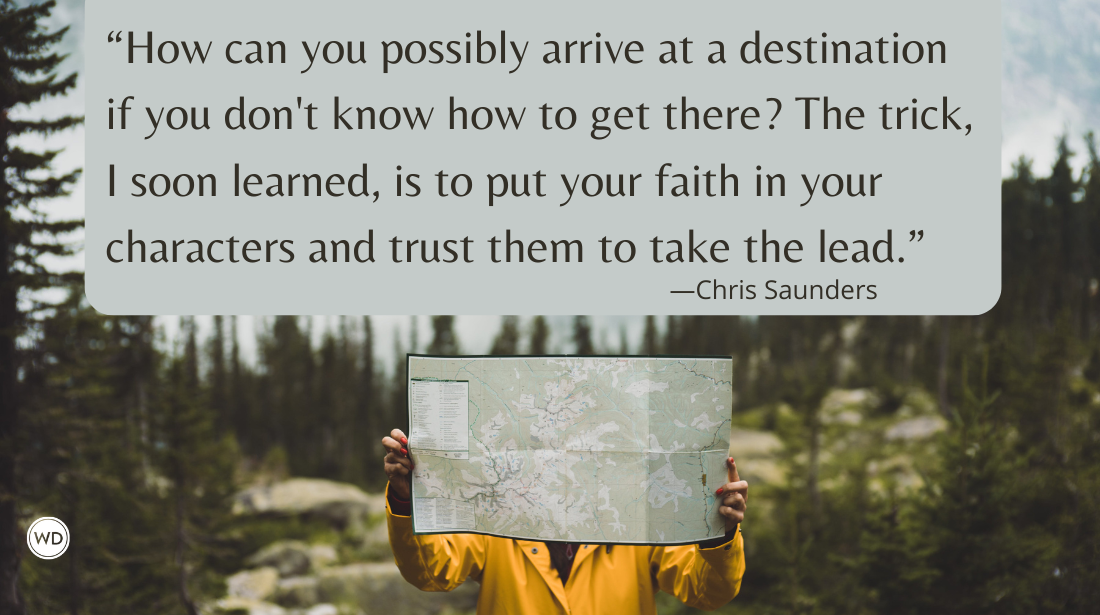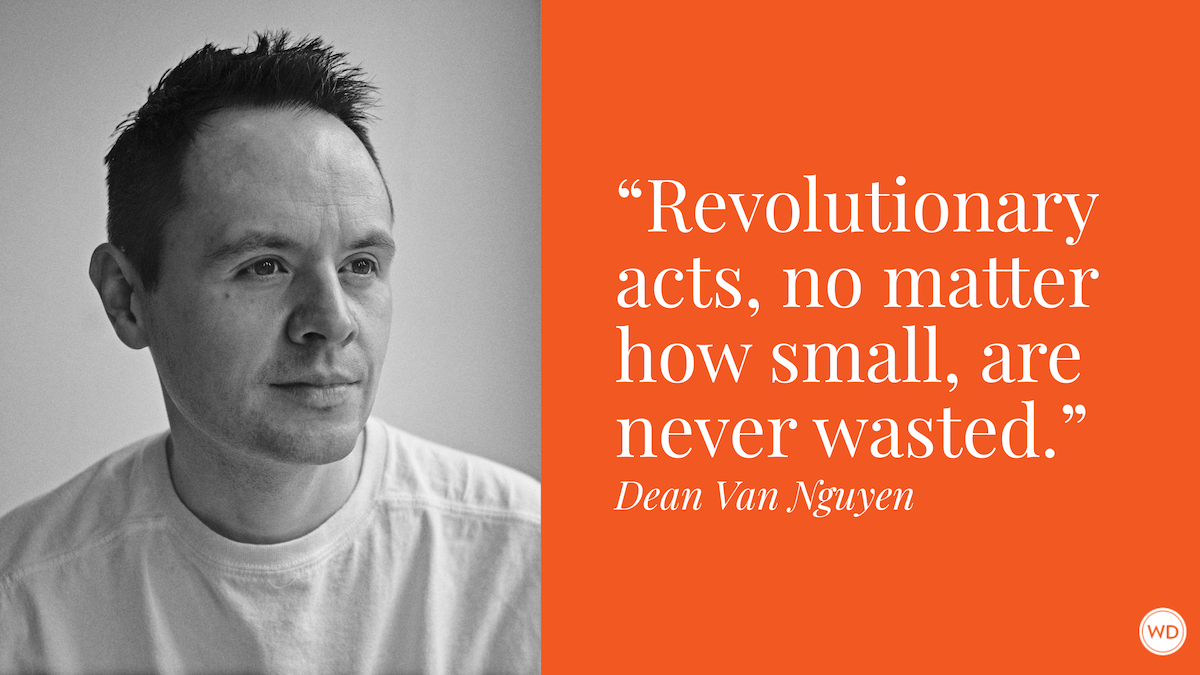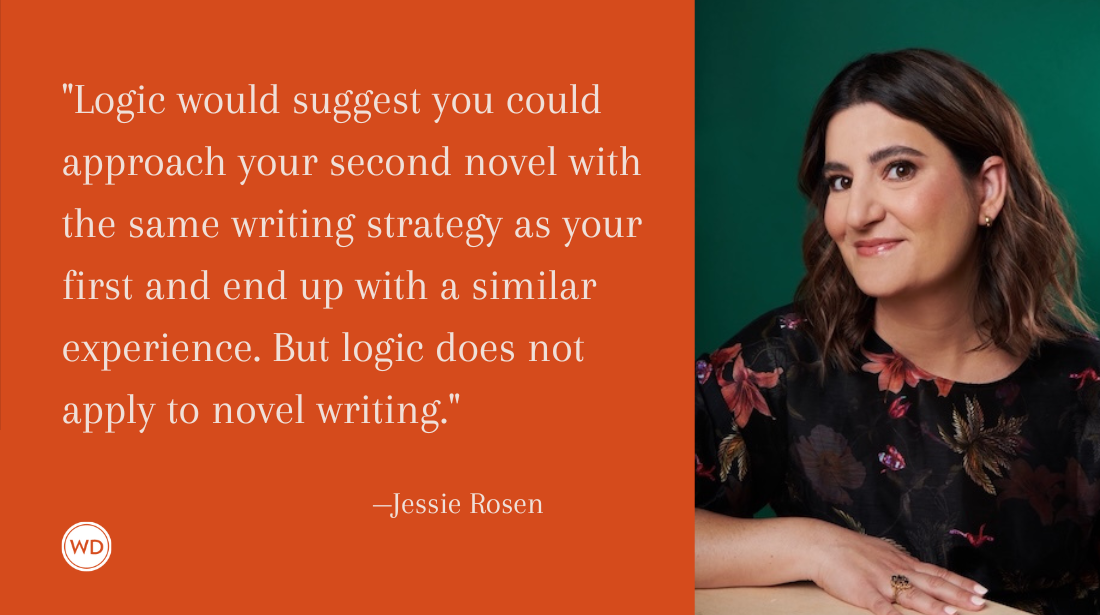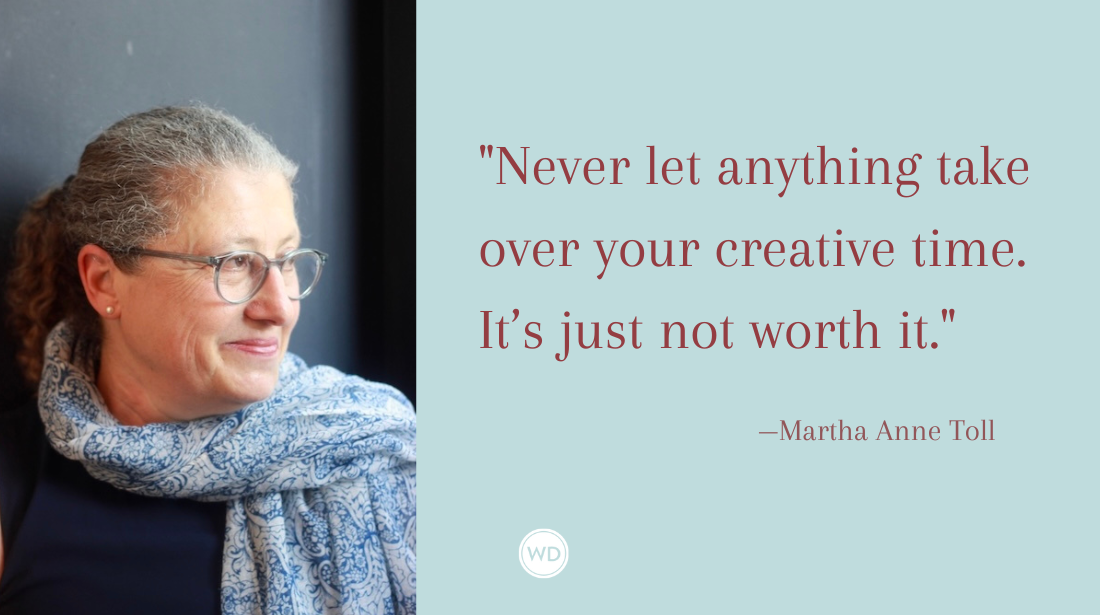Do Writers’ Futures Lie in Indie E-Publishing Platforms?
The March/April issue of Writer’s Digest magazine hits newsstands in the week ahead; its feature package focuses on self-publishing. While the issue touches on all forms of self-publishing—print as well…
The March/April issue of Writer’s Digest magazine hits newsstands in the week ahead; its feature package focuses on self-publishing. While the issue touches on all forms of self-publishing—print as well as digital/electronic—we could do an entire issue devoted to the evolving models for online or digital self-publishing.
We also closed the issue before the partnership announcement between Stanza and Smashwords. You’re probably thinking, Why do I care about the partnership of two companies I’ve never heard of?
True, it wasn’t until I had an iPhone that I became really aware of these two companies and understood what was happening.
Here are the basics:
- The iPhone is a mobile device that’s used by nearly 20 million people.
- Stanza is a popular e-book reader you can use on your iPhone (you download it for free directly from your phone).
- Smashwords is a self-publishing company that publishes e-books only. You can use their service without any upfront cost, plus you can make your book available for as little or as much as you want (even for free).
- Smashwords + Stanza means your self-published work can be available to millions of people, or at least the 1 million people who have downloaded the Stanza application onto their iPhones, as of January 2009.
Big-picture, what does this mean for writers? We’re starting to see the eradication of distribution barriers to self-published works. If authors can effectively spread the word about their work, then it can be quickly, easily, and inexpensively downloaded on a very popular device.
I find it intoxicating. All of this is quite new, but also instantly transformative. Smashwords debuted in early 2008; Stanza became available on the iPhone in July 2008. (You can see the impact Stanza has had on the reading and publishing community by reviewing the headlines on their news page.)
So I took some time to talk on the phone with Smashwords founder, Mark Coker, as well as Lexcycle’s COO, Neelan Choksi. Here’s some of what they had to say.
Interview with Mark Coker at Smashwords
I’m just now realizing the power of the iPhone and Stanza. I
admit, I didn’t really comprehend the e-book universe until recently.
Stanza
has become a really powerful reading platform. If you talk to core
e-book reading enthusiasts, they'll tell you that the iPhone is nothing
new, but I think what we're starting to see is we're expanding beyond
those early adopters to the mainstream. Especially with Oprah talking
about the Kindle, that opens people's eyes.
Reading on paper is
a prejudice we're up against. But when people try it, they have a wow
moment, kind of this religious experience. My first experience with the
Kindle was on Waikiki beach … and I brought it on my vacation, and I
booted it up, and I went to the bookstore, and I downloaded samples of
different books. It was easy and within 10 minutes I had purchased my
first book. You can bring the bookstore anywhere, you can bring your
library anywhere, and you can have your book your way.
E-books
still only account for about 1% of all book sales, probably less.
There's a lot of upside—it's going to happen, it's going to continue to
grow in a big way, regardless of what happens with the traditional
print industry.
What we're seeing with e-books is what we saw
with blogging several years ago—the same prejudices in the media, but
we saw what happened in the blogosphere. There are a lot of talented
people in the world, and until some of these technologies came along,
they just did not have a voice or a chance to show their talent.
A
lot of writers or authors ask me: Will they be able to earn the same
kind of living if e-books start to replace traditional print book sales?
Writing
is going to become more profitable for more authors. Even if e-books
continue to become widely successful, print books aren't going to go
away. The authors that are currently successful in print will continue
to be successful in print. If you look at the current book industry
supply chain, from author to reader, it’s
author-agent-editor-publisher-packager-distributor-warehouser-bookstore.
There are a lot of costs associated with that supply chain. It's a big
cost to ship dead trees. There are a lot of costs that can be cut when
you go digital. The costs of producing a digital book, or the costs of
producing one more copy, are zero. If the book is going to be
professionally edited and vetted by an editor, there are still those
costs. But when you eliminate all these other costs, like returns, you
can dramatically lower the cost of the book to the customer and at the
same time dramatically increase the profitability to the publisher or
the author.
Another thing that gets me excited about Smashwords
is the lower cost of books. Most of the books are $3, many are free.
Print books averaging $14.95 are unaffordable to the vast majority of
people on this earth. It's really cool to think that if we can lower
the cost of books, then we can lower the barrier to unleash a new era
of literacy and culture and information sharing.
We'll always have commercial books and we need them, and we need a way for authors to profit from their works.
Longer
term, like a year or two, my hope is that Smashwords will start
attracting some established authors who choose to go the independent
route for their next book or choose to keep the digital rights and
publish it on their own.
For authors who choose to self-publish, are e-books a better option?
Print
is a very important format. Authors should provide to the consumer
whatever the consumer wants to have. Authors should continue to publish
in print and also publish in a digital format.
The biggest
threat facing all authors is obscurity. This is another exciting thing
about digital books, making them accessible in an entirely different
way. I think is print wonderful—but they're different things.
Books
have always been sold via word of mouth. The Internet is an ideal word
of mouth tool. We've added simple things to make it easy for people to
share their books on social networks. If the book is truly great, it
can find an audience.
In the next five years, I think it's fair
to say we're going to see fewer bookstores out there. As bookstores
disappear, it reduces exposure opportunities for authors who are lucky
enough to be part of that system. And it also hurts publishers. It's
happening already today—we're going to see fewer bookstores, few
publishers, and publishers publishing few books, at least under the
traditional system. So I think we're going to see publishers making
more interesting use of digital, more use of POD, and more authors
aspiring to be independent from the beginning.
Our focus as a
digital publishing platform is to provide all authors the tools they
need to publish, promote, and sell their books and we hope that it’s an
enabling force to unleash a torrent of new talented content out there.
I can't stress it enough, though: Authors need to be realistic. This is
not a get-rich quick thing. It's always been difficult to sell a book,
and as an indie author, it's even more difficult. Authors who invest
their time and energy into this will be rewarded for it.
Interview with Neelan Choksi, COO of Lexcycle (creator of Stanza)
I
see a lot about reader response and awareness of e-books, but I wonder
if writers or authors also understand what’s happening, and are using
the iPhone and Stanza?
The writers are pretty cognizant of
what's going on, or at least they're learning about it. There's enough
mainstreaming of what's happened. As soon as you get Oprah talking
about the Kindle and by extension e-books, you've just mainstreamed the
whole thing. I do believe that writers are very aware of it, and it may
be going from genre to genre at different paces. For example, sci-fi
and romance, as is often the case, are leading the charge. We first
read about Stanza and romance on someone's blog; they had gotten an
early edition from an author using Stanza on their iPhone. That’s one
example; there's a lot of examples, where individuals are starting to
figure it out.
We get pretty regular e-mails or calls or
conversations with authors. With Random House, there's a promotion
happening and a bunch of others are doing the same promotion. They went
to about a half dozen of their authors and said: We can make your
backlist titles available on Stanza for free, plus an excerpt of your
upcoming book for free, and it will be a way of getting new readers
learning about you as an author. Cory Doctorow made that model
unbelievably famous.
And example of another conversation I had
with an author—with everything that's happening in the big houses from
a publishing perspective—there's all of this upheaval. Part of what's
happening is that the blockbuster authors will always get the attention
of the publishers, but there's a level that now just aren't. More than
300,000 copies of this author’s book will sell, and his comment was
that he didn't believe his next book was going to get the attention
from his publisher. He was thinking about creating his own publishing
house. I mentioned Smashwords to him, here's a really interesting
model. How many books would you have had to sell with your original
publisher to make the same money as you would with Smashwords?
Some
big author is going to go this indie route, either as a threat, or as
something they truly believe in. Someone's going to do it simply
because the numbers make sense.
None of this would have happened
if digital publishing hadn't reached this inflection point. The numbers
still aren't that big ($44 million sold in the United States), and
aren't particularly compelling when compared to the traditional
industry. But I think a million isn't a number that anyone expected us
to have at this point.
Can you give any insight into what genres or categories are selling the best through Stanza onto the iPhone?
I
fully expect the breakdown to look just like the rest of America’s book
sales. Right now, there's a lot of interest in politics and government
and Obama.
Remember this company is about a year old. The
desktop version of Stanza for Mac was basically supposed to take
content and covert and upload it to a Kindle, primarily for people's
personal documents. The iPhone Stanza app released in July 2008 with
just free books—a strategic decision because we felt there would be
push back. … We thought the best thing was to put no barriers in the
way of adoption.
What’s been the biggest surprise for you?
We
had no anticipation we would hit 1 million downloads in 5.5 months. The
adoption has probably been one of the biggest surprises of all.
The
industry itself right now is in a situation that all ships rise with
the tide. Maybe really the surprise was how much marketing Amazon was
going to do, how much marketing Sony was going to do, and all of the
new devices that are coming out. … It just feels like there's so much
momentum behind it.
Also, one of our most commented on features
is the simple fact that when you reopen Stanza on iPhone, it takes you
right back to the last page you were on and the last book you were in.
You don't have a problem with reading five pages worth of material
while standing the grocery store line. You get immediately back to
where you were, and you know as soon as you shut it down or take a
call, you know when you open up Stanza, you'll go back to that same
spot. It's a bookmark essentially.
We've done a survey on our
site and the primary places that people read using stanza are (1) bed
(2) commuting (3) waiting areas.
That was a big surprise for a lot of people, iPhone use in bed.
—————
I'd
love your comments about your experience either reading e-books or
writing/selling/promoting e-books. What's most exciting about it, and
if you're a writer, what causes you the most worry?
Jane Friedman is a full-time entrepreneur (since 2014) and has 20 years of experience in the publishing industry. She is the co-founder of The Hot Sheet, the essential publishing industry newsletter for authors, and is the former publisher of Writer’s Digest. In addition to being a columnist with Publishers Weekly and a professor with The Great Courses, Jane maintains an award-winning blog for writers at JaneFriedman.com. Jane’s newest book is The Business of Being a Writer (University of Chicago Press, 2018).








